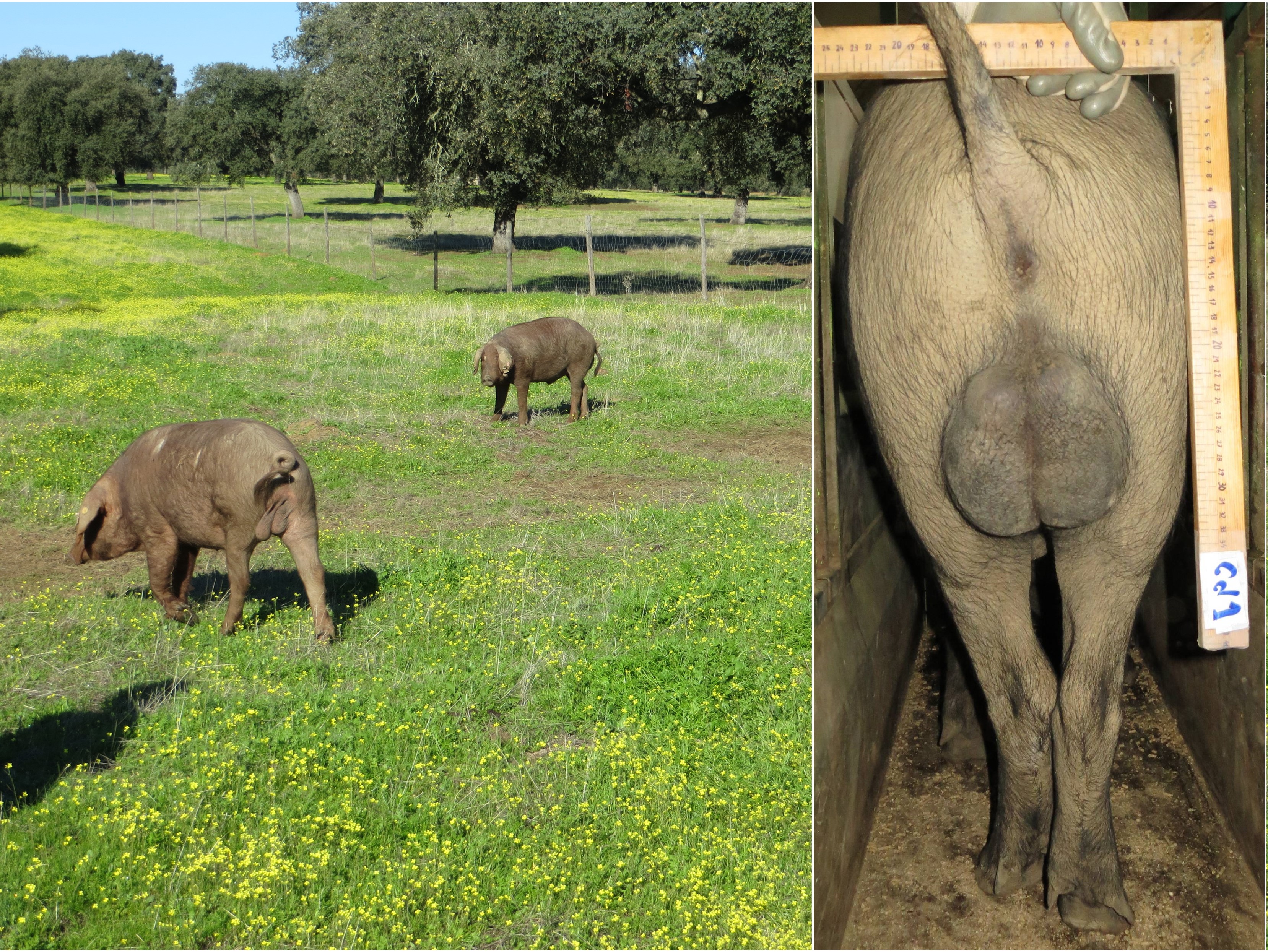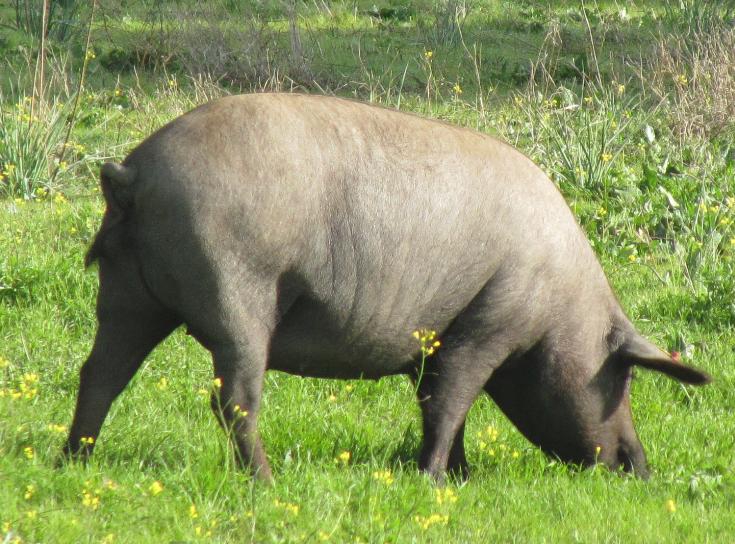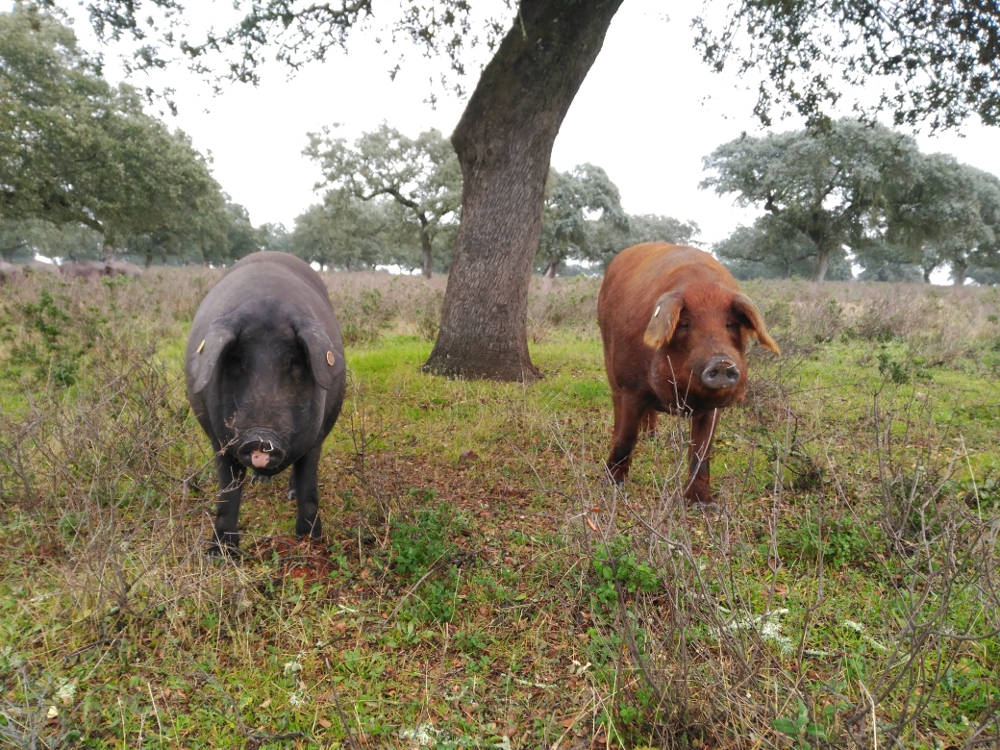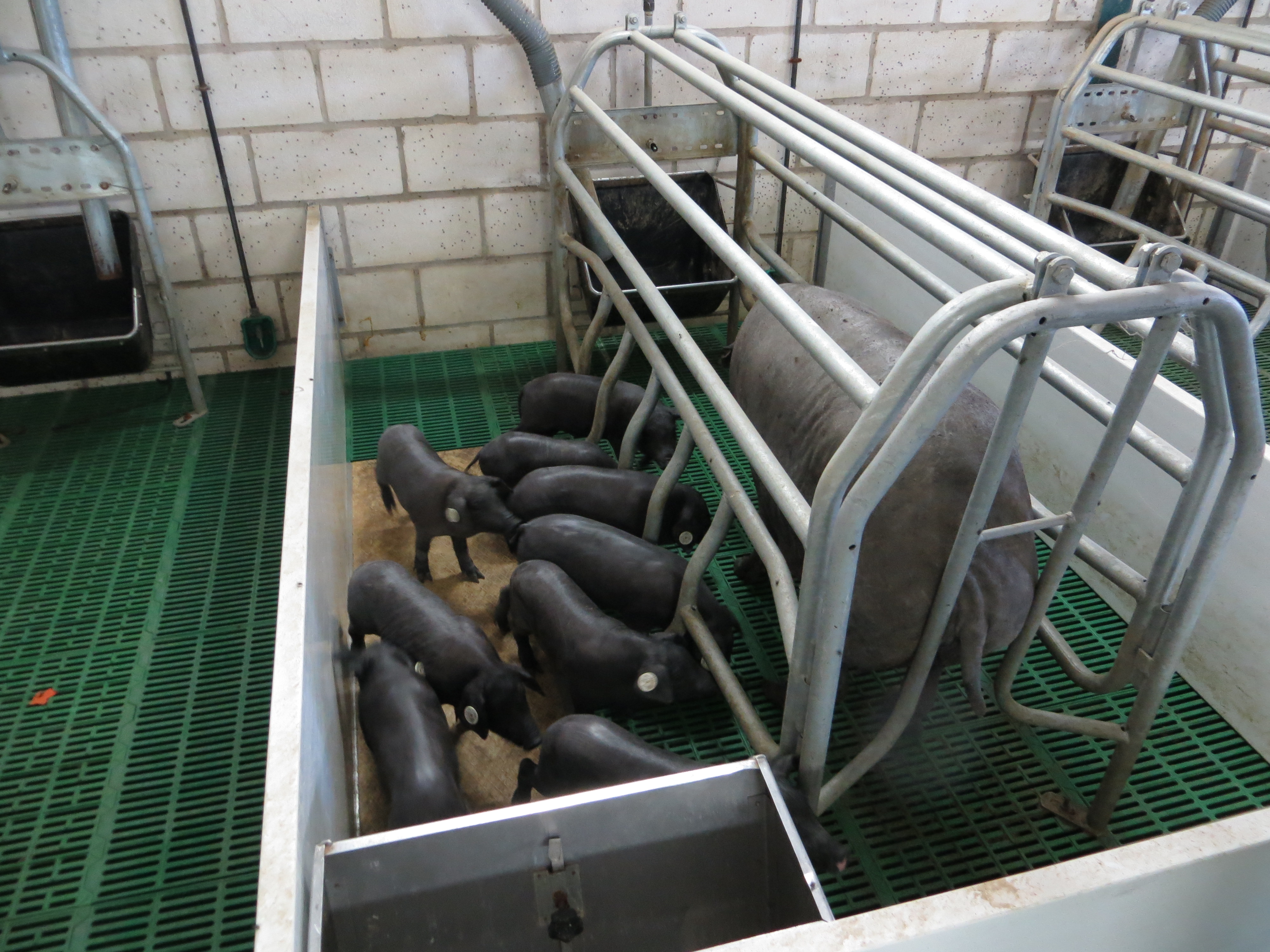Iberian pig
 General information
General information
The Iberian pig industry is one of the most important drives of the economy in Extremadura. It mainly focuses on the extensive or semi-extensive production of pigs using the natural resources provided by the natural environment known as dehesa, where most of the meat being produced is destined to making cured products, such as ham. A major market for fresh Iberian meat has also been developed with meats of outstandingly high quality.
 Needs of the Iberian industry
Needs of the Iberian industry
Although this industry is currently undergoing change, it is important for it to continue to progress towards farm digitalisation and increasingly more sustainable and environmentally-friendly production. In order to successfully overcome this process, it is important to promote the use of pig autochthonous breeds and varieties, such as the Iberian pig and its varieties, which are well adapted to the surroundings and the consumption of natural resources, while also yielding high-quality products. It is also necessary to promote actions that take animal wellbeing into account, as well as actions to help reduce the carbon footprint, at the same time as reducing production costs in line with other practices being considered as “animal friendly” and “environment friendly”.

Immunocastrated Iberian pig males (left) at the beginning of the montanera in the Valdesequera Farm and whole male (right) of the same breed and age for comparison of testicular size
 Animal wellbeing program
Animal wellbeing program
At CICYTEX, we are working to implement specific strategies for immunological castration in order to replace the traditional surgical castration of Iberian pig males and females. Immunological castration is a painless procedure, but it is necessary to establish certain protocols to guarantee it is also effective and that it takes into account the heavy weight of the animals, their rearing in extensive systems and the advance age at which animals are slaughtered. The purpose of this practice is to prevent unwanted mating and reducing the sexual hormone content and compounds in meat.
In terms of feeding, we are developing types of animal feed that are rich in satiating fibres, such as rice hull or straw, which has come to be called “wellbeing fibre”, since its purpose is to reduce the excessive appetite pigs have (especially Iberian pigs) before the start of the Montanera stage, thus preventing hierarchical fights amongst them.
 Sustainability and carbon footprint
Sustainability and carbon footprint
Taking as a reference point the dehesa ecosystem and the extensive production system where Iberian pigs are reared –against the intensive systems- we are proposing strategies to reinforce sustainability in these farms. One of the most important ones is the replacement of soy protein (exporting product) by other sources of protein deriving from locally-grown crops, amongst which is the sweet lupin and some by-products, such as rapeseed cake. Other diets for weaners are also being developed using natural additives and extracts of aromatic and medicinal plants in order to reduce the use of antibiotics and other drugs and provide essential fatty acids in the fodder given to piglets after weaning.
These projects are complemented with Life Cycle Studies, which enable us to assess the degree of economic and environmental sustainability, as well as improving the greenhouse gas emissions deriving from the farms, processes and transport involved in obtaining animal fodder.
 Autochthonous varieties of the Iberian pig
Autochthonous varieties of the Iberian pig
At CICYTEX, we have classified the three major families of Iberian pig available in Extremadura: Lampiño, Torbiscal and Retinto, since others are endangered due to the existence of only a few numbers of them. The potential crossbreeds between them are also being considered in order to provide the industry with various types of products that might enable the suppliers to offer a wider product range to consumers.
As well as being produced, the genome of these breeds are also under study with the purpose of detecting specific mutations in each that may help traceability and also favourable mutations for specific productions. These studies are complemented with the assessment of the gene expression (Transcriptomics) relating to fat metabolism subject to the feed provided to the pig.
 Genetic improvement and pig technology
Genetic improvement and pig technology
CICYTEX cooperates with AECERIBER (National Association of Iberian pig breeders) in the Iberian breed genetic improvement program (production improvements) and in the preservation of endangered breeds.
A line of work has been requested by businesses in order to increase the amount of meat-infiltrated fat and improving its distribution by means of genetic selection. In order to accomplish this, it is necessary to develop fast and user-friendly technologies that allow for the measuring of such infiltrations, as well as implementing the existing ultrasound technology. For the purposes of implementing this technology we have specialists in Histology (branch of Biology that studies the composition, structure, characteristics of the organic tissue of beings).








